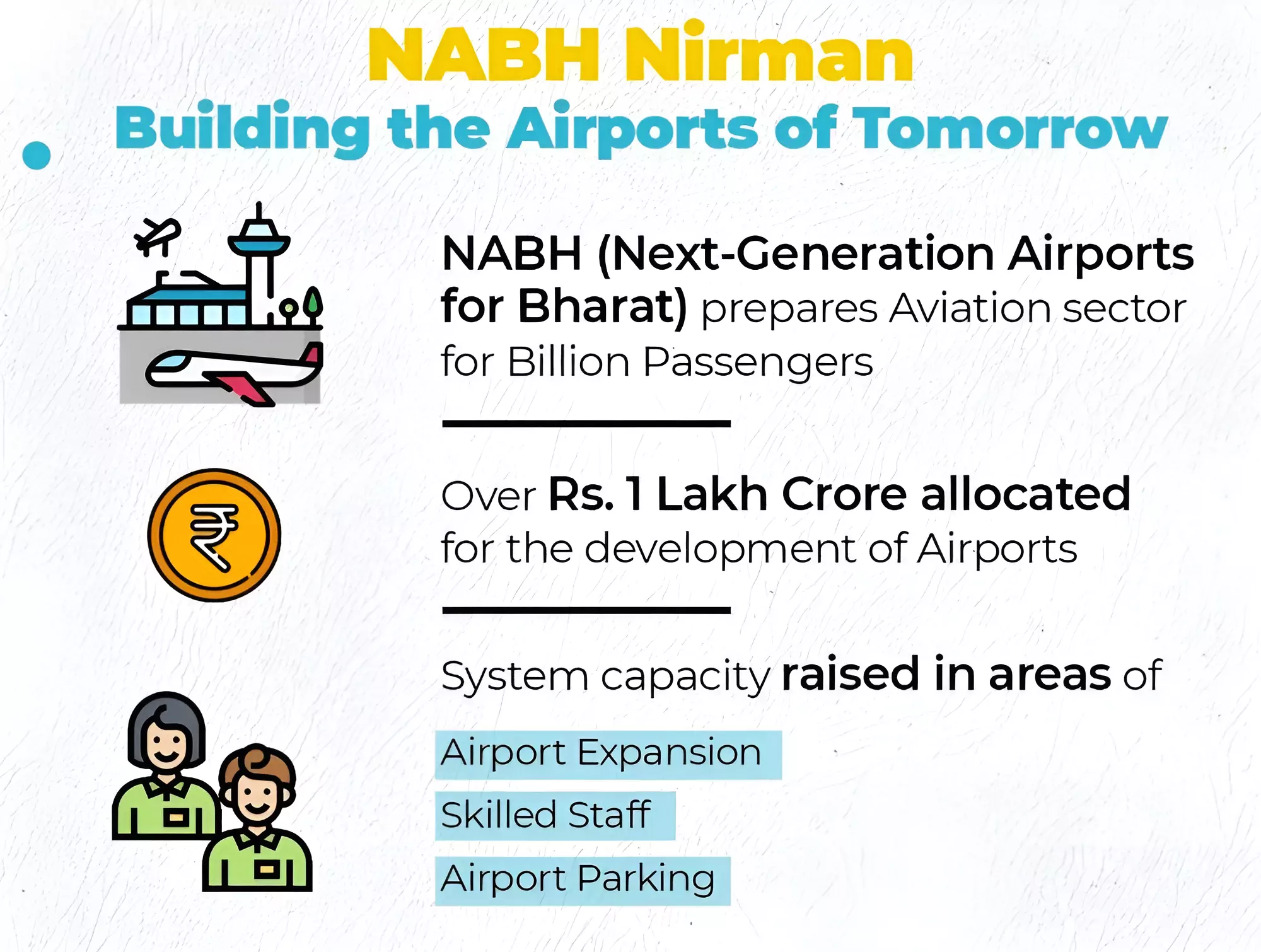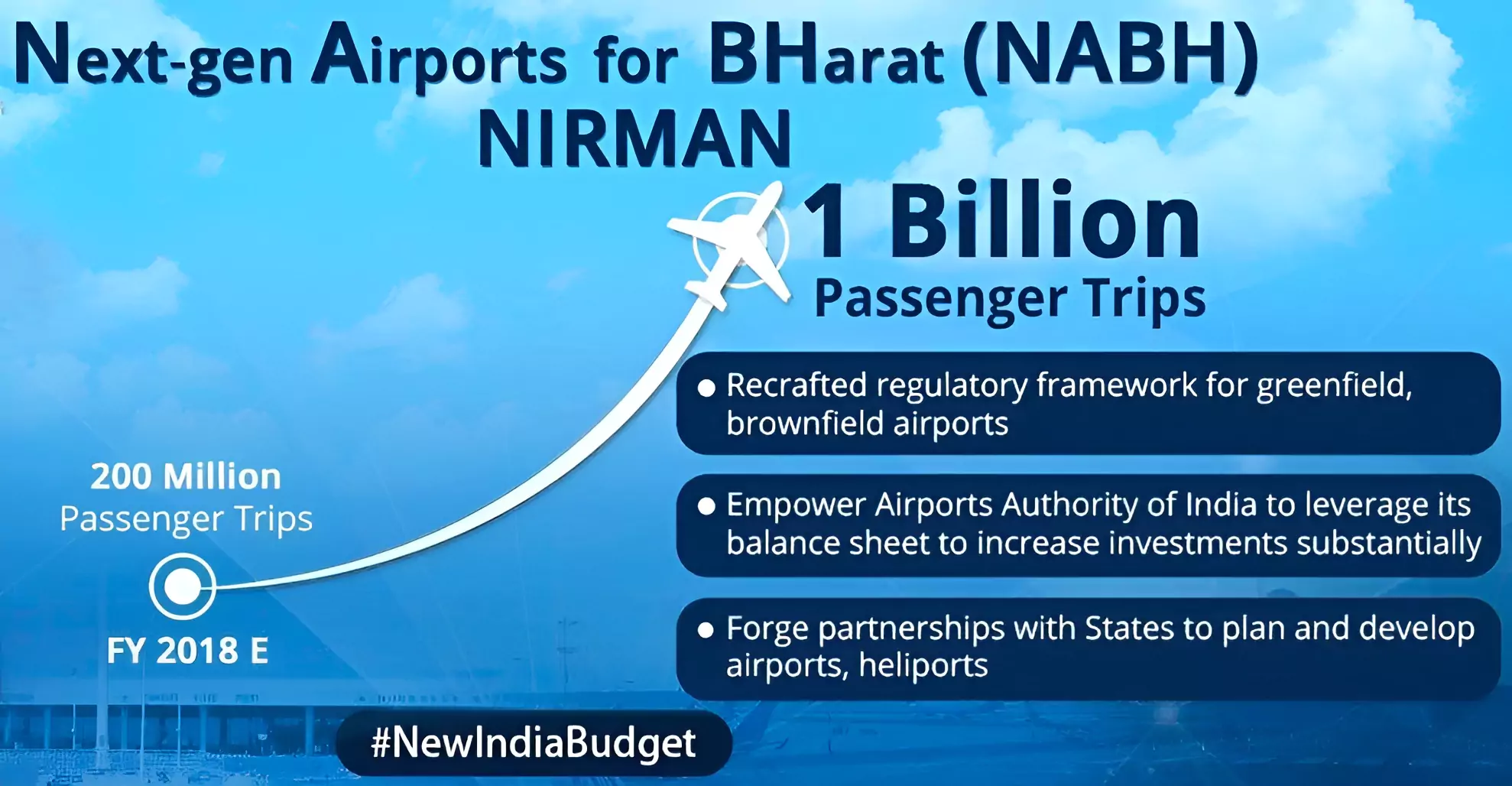NABH NIRMAN Scheme is an initiative by the Ministry of Civil Aviation to increase the capacity of various airports under the NABH (NextGen Airports for BHarat) Nirman initiative.

NABH NIRMAN Scheme is an initiative under the government of India which proposes to expand airport capacity in India by more than five times to handle a billion trips a year.
NABH NIRMAN Scheme is an initiative by the Ministry of Civil Aviation to increase the capacity of various airports under the NABH (NextGen Airports for BHarat) Nirman initiative.
| NABH NIRMAN Scheme | (Nextgen Airports For Bharat) Nirman Initiative |
| Launch Year | 2018 |
| Nodal Ministry | Ministry of Civil Aviation |
Objectives of NABH NIRMAN Scheme |
|
|
|
|
|
|
|
|

Although the objectives of UDAN and NABH NIRMAN Scheme are overlapping, UDAN and NABH programs are not the same. UDAN was introduced in 2017 by the Ministry of Civil Aviation. UDAN aims to enhance regional connectivity in India by developing smaller airports, making aviation services more accessible to citizens.
The primary objective of the NABH NIRMAN Scheme is to expand the capacity of airports across India by increasing the number of flights to accommodate a higher number of travelers. Regional connectivity plays a very crucial role in achieving this objective, as it allows more people to access airports, leading to an overall increase in the number of passengers.
To make this objective fulfill UDAN was introduced with specific components
NABH NIRMAN Scheme primarily focuses on enhancing passenger facilities and ensuring the prompt operationalization of 56 new airports, all of which fall under the UDAN scheme. If we can analyse, NABH and UDAN schemes work together to not only improve airport infrastructure but also to make air travel more accessible and efficient for citizens across the country.

Strength |
|
Weakness |
|
Opportunities |
|
Threat |
|
| Must Read | |
| NCERT Notes For UPSC | UPSC Daily Current Affairs |
| UPSC Blogs | UPSC Daily Editorials |
| Daily Current Affairs Quiz | Daily Main Answer Writing |
| UPSC Mains Previous Year Papers | UPSC Test Series 2024 |
NABH NIRMAN Scheme initiative under the government of India which proposes to expand airport capacity in India by more than five times to handle a billion trips a year.
NABH stands for (Nextgen Airports For Bharat) Nirman Initiative.
Although UDAN and NABH NIRMAN Scheme have same objectives but there is small diversion from each of them UDAN is more focused towards regional connectivity and affordability for passengers whereas NABH focuses towards investments for expanding the airport facility.
No, NABH focuses not only on the expansion of air transportation but also the expansion of promoting cargo handling facilities.
No, not at all Digi Yatra is a digital initiative aimed at reducing the time of passengers by eliminating long queues.
<div class="new-fform">
</div>